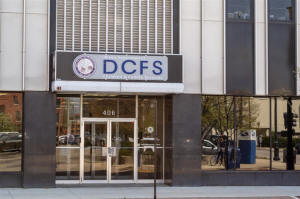Faith-based child welfare controversy may be reignited in Illinois
 Send a link to a friend
Send a link to a friend
[June 22, 2021]
By PETER HANCOCK
Capitol News Illinois
phancock@capitolnewsillinois.com
 SPRINGFIELD – A recent U.S. Supreme Court
decision could reignite a 10-year-old controversy in Illinois over
whether faith-based charities can be prohibited from contracting with
the state for foster care and adoption services on the grounds that they
refuse to work with unmarried or same-sex couples. SPRINGFIELD – A recent U.S. Supreme Court
decision could reignite a 10-year-old controversy in Illinois over
whether faith-based charities can be prohibited from contracting with
the state for foster care and adoption services on the grounds that they
refuse to work with unmarried or same-sex couples.
In a 9-0 decision Thursday, the nation’s high court ruled against the
city of Philadelphia, which had refused to renew a contract for foster
care services with Catholic Social Services, arguing that the
church-based agency’s refusal to place children in the homes of
unmarried and same-sex couples violated a non-discrimination clause in
the agency’s contract with the city.
Illinois went through a similar controversy in 2011, shortly after the
state legalized civil unions among same-sex couples, when the Department
of Children and Family Services refused to renew a contract with
Catholic Charities of Illinois over a similar policy.

At that time, however, a circuit court judge in Sangamon County sided
with the state and dismissed a lawsuit brought by Catholic Charities.
“For us here in Illinois, had this decision been on the books when the
state of Illinois did what it did back in 2011, the Catholic Charities
would have been continuing in foster care,” said Peter Breen, vice
president and general counsel for the Chicago-based Thomas More Society,
which intervened in the case.
“And we wouldn't have had to suffer through the last 10 years of DCFS
incompetence, which has harmed so many children, because you would have
had your best performing foster care providers continuing the work they
had been doing for a century or more,” he added.
In last week’s Supreme Court case, Fulton v. Philadelphia, the court
faced an almost identical question – whether the non-discrimination
clause in the contract violated Catholic Social Services’ First
Amendment right to the free exercise of religion.
In this case, the court ruled that it did, but the justices decided that
issue on narrow grounds that some legal experts say only applies to the
city of Philadelphia.
Normally, the court would uphold the right of a state or local
government to enact a requirement that might burden the free exercise of
religion as long as the rule is both neutral and generally applicable to
all individuals and groups, regardless of religious affiliation. That
standard comes from a 1990 Supreme Court case involving the Oregon
Division of Employment Security.
But in Philadelphia’s case, the justices said, the rule is not generally
applicable because the contract contains a clause allowing for
exceptions to be made “at the sole discretion of the Commissioner” of
the Philadelphia Department of Human Services.
“No matter the level of deference we extend to the City, the inclusion
of a formal system of entirely discretionary exceptions ... renders the
contractual non-discrimination requirement not generally applicable,”
the court wrote.
Ed Yohnka, director of communications and public policy for the ACLU of
Illinois, said that distinction makes the Philadelphia case markedly
different from the 2011 case in Illinois.
[to top of second column]
|

The Department of Children and Family Services
building is pictured in Springfield. (Capitol News Illinois file
photo)

“The way in which it differs is that DCFS required
every agency who provided care and adoption and foster care services
through contracts with the agency to comply with all of Illinois’
non-discrimination laws,” he said. “They didn't pick and choose on
the basis of what the objection was on the part of a particular
service provider.”
Although the Supreme Court’s decision last week was unanimous, four
of the justices – Amy Coney Barrett, Brett Kavanaugh, Neil Gorsuch
and Clarence Thomas – signed on to concurring opinions saying they
would have gone even further by agreeing to review, if not strike
down, the standard set in the 1990 Oregon case.
A fifth justice, Stephen Breyer, who is often seen as a swing vote
on the court, also signed on to one of the concurring opinions,
except for a paragraph saying the Oregon standard likely should be
overturned.
“This decision is the latest in a string of decisions that have come
out from the Supreme Court in the last few years respecting the
rights of people of faith to participate in public life,” Breen
said. “And the trend is clearly in favor of construing the
Constitution to protect religious individuals and entities from the
heavy hand of government.”
But Breen said it is unlikely that Catholic Charities in Illinois –
which are operated by the four archdiocese of the Catholic Church in
the state – will try to reestablish itself with state contracts for
child welfare services anytime soon because, when the Sangamon
County court ruled against them in 2011, they essentially dismantled
their services while their staff went to other outside agencies.
“Restarting foster care would not be a small task for any entity,
starting from scratch,” he said.

Yohnka, at the ACLU of Illinois, meanwhile, said he couldn’t predict
whether the Philadelphia case would reopen another chapter of
litigation in Illinois. But he said he thinks it would be wrong for
the state to revisit the issue.
“I think what's interesting, or what's lost in this is that there
was just that recent report by the auditor general, that found DCFS
and its partner agencies were failing to serve LGBTQ kids across the
state, really, to the point of just not having any kind of capacity
to really even identify, provide services, provide spaces and homes
for them to live in where they could be affirmed,” he said. “And I
think the idea of going backward in terms of allowing for gay or
lesbian couples to be discriminated against in foster care or
adoption really feels like a gigantic mistake in the context of what
we already know.”
Capitol News Illinois is a nonprofit, nonpartisan
news service covering state government and distributed to more than
400 newspapers statewide. It is funded primarily by the Illinois
Press Foundation and the Robert R. McCormick Foundation. |